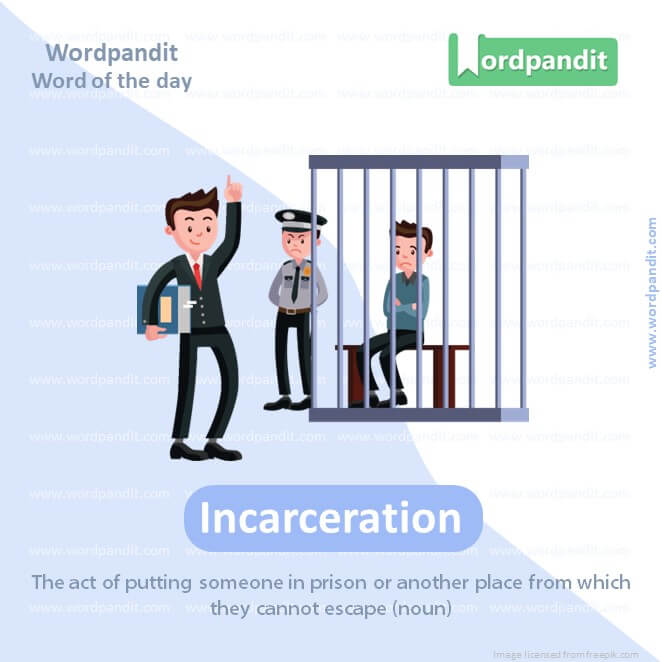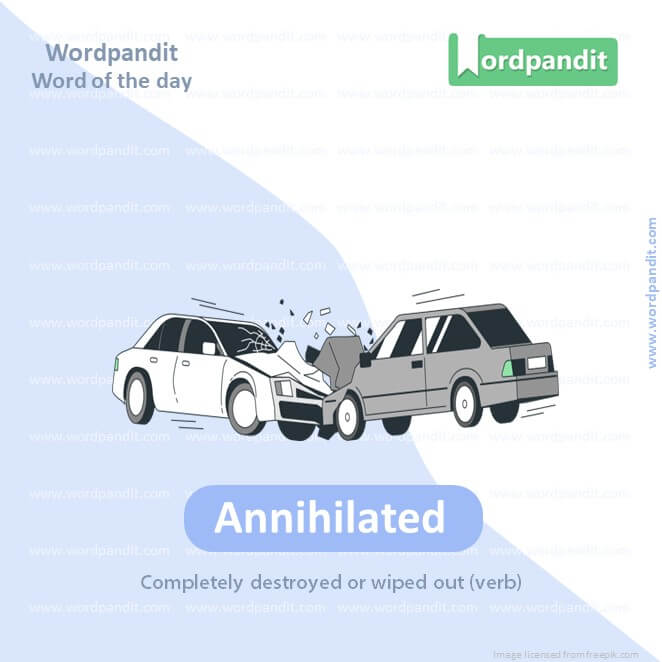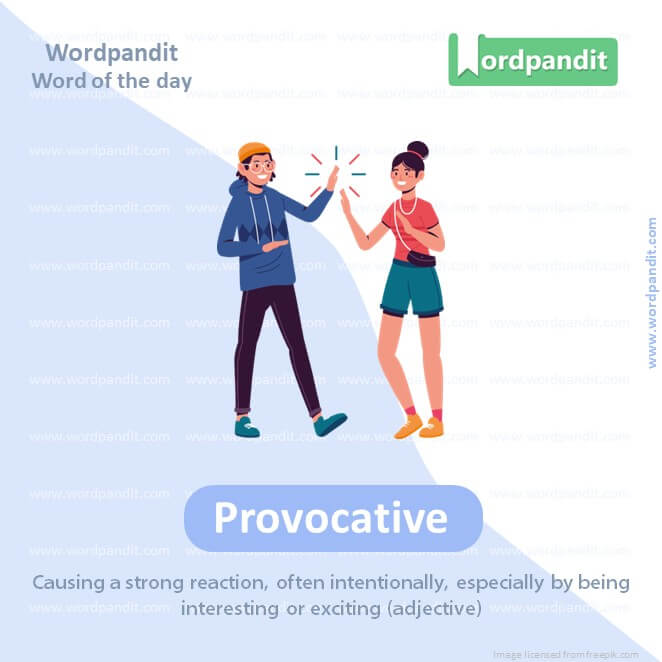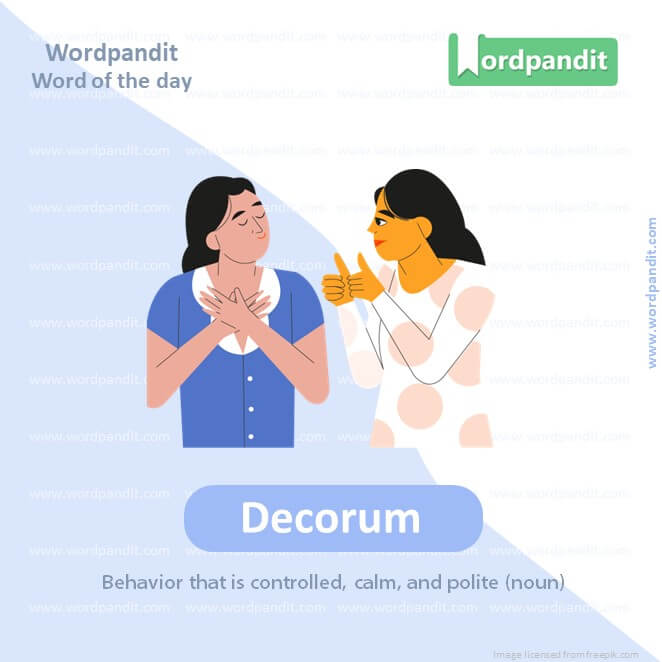Daily Vocabulary Words: List of Daily Used Words in Leading International Newspapers
Hi there. Welcome to this special section @ Wordpandit.
Our endeavour here is very simple: to highlight important daily vocabulary words, which you would come across in leading newspapers in the country. We have included the following newspapers in our selection:
• The New York Times
• The Washington Post
• Scientific American
• BBC
• The Guardian
• Psychology Today
• Wall Street Journal
• The Economist
We are putting in extensive work for developing your vocabulary. All you have got to do is be regular with this section and check out this post on a daily basis. This is your repository of words that are commonly used and essentially, we are posting a list of daily used words. Hence, this has significant practical application as it teaches you words that are used commonly in leading publications mentioned above.
Visit the website daily to learn words from leading international newspapers.

WORD-1: Incarceration
CONTEXT: We were held captive like prisoners who had never committed a crime or shot down when we attempted to peacefully protest our incarceration.
SOURCE: Washington Post
EXPLANATORY PARAGRAPH: Incarceration is like being put in a long time-out in a special place called a prison, where people have to stay because they broke a big rule.
MEANING: The act of putting someone in prison or another place from which they cannot escape (noun).
PRONUNCIATION: in-kar-suh-RAY-shun
SYNONYMS: Imprisonment, confinement, detainment, custody, captivity
USAGE EXAMPLES:
1. The judge ordered the man’s incarceration for his role in the crime.
2. The new law may lead to increased rates of incarceration.
3. After his release, he spoke about the impact of incarceration on his life.
4. The attorney argued against the prolonged incarceration of her client.

WORD-2: Annihilated
CONTEXT: They plan to continue attacking the Jewish state until it is annihilated.
SOURCE: New York Times
EXPLANATORY PARAGRAPH: Annihilated is when something is destroyed so much that it’s like it was wiped away completely, like a sandcastle that gets smashed.
MEANING: Completely destroyed or wiped out (verb).
PRONUNCIATION: uh-NYE-uh-lay-tid
SYNONYMS: Destroyed, obliterated, demolished, wiped out, eradicated
USAGE EXAMPLES:
1. The ancient city was annihilated by a natural disaster.
2. The player annihilated his opponent in the chess match.
3. The invading army annihilated all resistance.
4. The disease was nearly annihilated by the new vaccine.
WORD-3: Cessation
CONTEXT: the release of all hostages in exchange for a cessation of Israel’s ground offensive.
SOURCE: Guardian
EXPLANATORY PARAGRAPH: Cessation is like when you stop playing a game or taking a break from running around; it’s stopping something.
MEANING: The process of ending or being brought to an end (noun).
PRONUNCIATION: se-SAY-shun
SYNONYMS: Stopping, halt, end, discontinuation, termination
USAGE EXAMPLES:
1. The cessation of the rain allowed the picnic to continue.
2. There was a cessation in the noise when the machine was turned off.
3. The treaty called for the cessation of hostilities.
4. The cessation of the service was announced last month.

WORD-4: Combatants
CONTEXT: a cease-fire is an ad hoc measure under which combatants do not waive their right to resume military operations if other efforts to permanently end an armed conflict fail.
SOURCE: Guardian
EXPLANATORY PARAGRAPH: Combatants are like people in a video game who fight against each other, but in real life, they are soldiers or fighters in a war.
MEANING: People who fight in a battle or conflict (noun).
PRONUNCIATION: kuhm-BAT-ants
SYNONYMS: Fighters, warriors, soldiers, belligerents, antagonists
USAGE EXAMPLES:
1. The combatants laid down their weapons to negotiate.
2. Both combatants were injured in the duel.
3. The combatants were trained for months before the battle.
4. Aid workers tried to help the wounded combatants.

WORD-5: Provocative
CONTEXT: That includes political speech of the type described above, but it also includes provocative food opinions.
SOURCE: Guardian
EXPLANATORY PARAGRAPH: Provocative is when someone does or says something on purpose to get a reaction, like making a funny face to make someone laugh.
MEANING: Causing a strong reaction, often intentionally, especially by being interesting or exciting (adjective).
PRONUNCIATION: pruh-VAH-kuh-tiv
SYNONYMS: Stimulating, intriguing, challenging, offensive, inciting
USAGE EXAMPLES:
1. The artist’s provocative work sparked a lot of discussion.
2. He made a provocative statement during the interview.
3. The advertisement was designed to be provocative and attract attention.
4. Her provocative dress turned heads at the party.

WORD-6: Decorum
CONTEXT: the conditions of employment might require maintaining a certain level of decorum when you’re outside the office but in view of the public.
SOURCE: Guardian
EXPLANATORY PARAGRAPH: Decorum is behaving in a calm and proper way, like saying “please” and “thank you,” and not burping loudly at the table.
MEANING: Behavior that is controlled, calm, and polite (noun).
PRONUNCIATION: dih-KOR-um
SYNONYMS: Politeness, propriety, etiquette, manners, dignity
USAGE EXAMPLES:
1. The children were praised for their decorum during the assembly.
2. There is a strict decorum that must be followed in the courtroom.
3. He maintained decorum despite the provocation.
4. Decorum is important at formal events.
WORD-7: Commensurate
CONTEXT: Employees are paid salaries commensurate with those of teachers.
SOURCE: Washington Post
EXPLANATORY PARAGRAPH: Commensurate is when the size of one thing matches the size of another, like when you get a small toy for a small job, or a big toy for a big job.
MEANING: Matching something in size, importance, quality, etc. (adjective).
PRONUNCIATION: kuh-MEN-shur-it
SYNONYMS: Equivalent, proportional, corresponding, comparable, consistent
USAGE EXAMPLES:
1. Her salary is commensurate with her experience.
2. The punishment should be commensurate with the crime.
3. They were given responsibilities commensurate with their abilities.
4. The position offers benefits commensurate with those of other employees.
WORD-8: Indictments
CONTEXT: they wanted to renominate Trump, come hell, high water, or four separate criminal indictments.
SOURCE: Washington Post
EXPLANATORY PARAGRAPH: Indictments are like telling someone they have to go to the principal’s office because they might have done something wrong, and it needs to be talked about.
MEANING: Formal charges or accusations of a serious crime (noun).
PRONUNCIATION: in-DYTE-ments
SYNONYMS: Charges, accusations, allegations, prosecutions, arraignments
USAGE EXAMPLES:
1. The grand jury issued an indictment against the official.
2. His indictment for fraud shocked the community.
3. Multiple indictments were handed down in the corruption case.
4. Despite the indictments, the defendant maintained his innocence.
WORD-9: Erroneous
CONTEXT: who entered this primary with a slew of advantages, pursued an erroneous theory of the race.
SOURCE: Washington Post
EXPLANATORY PARAGRAPH: Erroneous is when something is not right or has mistakes, like if you thought cats could fly, that would be an erroneous idea.
MEANING: Wrong or incorrect (adjective).
PRONUNCIATION: eh-ROH-nee-us
SYNONYMS: Mistaken, incorrect, false, inaccurate, flawed
USAGE EXAMPLES:
1. The article was retracted due to erroneous information.
2. An erroneous belief led him to make the wrong decision.
3. The map was based on erroneous data.
4. The teacher corrected the student’s erroneous answer.
WORD-10: Pugnacious
CONTEXT: the landscape and decided to run as a semi-Trump — populist and pugnacious in style and echoing Trump about Russia and Ukraine being just a “territorial dispute.
SOURCE: New York Times
EXPLANATORY PARAGRAPH: Pugnacious is when someone is ready to argue or fight a lot, kind of like a superhero that’s always looking to save the day, but for arguing.
MEANING: Eager or quick to argue or fight (adjective).
PRONUNCIATION: pug-NAY-shus
SYNONYMS: Combative, aggressive, quarrelsome, belligerent, confrontational
USAGE EXAMPLES:
1. The pugnacious child was always getting into scuffles.
2. His pugnacious attitude often led to heated debates.
3. The debate team was known for their pugnacious strategy.
4. Despite his pugnacious reputation, he was a kind-hearted man.
vocabulary tricks
The proficiency of a language is often determined by the breadth of vocabulary. To effectively communicate, one must constantly expand their vocabulary. Many lean on ‘vocabulary tricks’ to speed up this process, enabling instantaneous recall and usage of new words. However, as these strategies require a methodological approach, the question becomes: how should vocabulary tricks be effectively learned?
The learning process involving vocabulary tricks commences with the practice of contextual reading. Engulfing oneself in a wide range of texts, from novels to scientific articles, presents new words in various contexts. This provides an understanding of their natural usage and subtler nuances. More importantly, it provides space for the application of the first trick – the Guessing Trick. This vocabulary trick forces the learner to deduce the meaning of the novel term based on its use in the text, sharpening linguistic intuition.
To cement new words, vocabulary tricks often suggest making personal connections. For instance, the Visualisation Trick is connecting visual images related to the word’s meaning. A vivid image associated with a word tends to stick longer in our brains, ensuring quick recall.
Yet another amongst clever vocabulary tricks is the Mnemonic Trick. Through this, learners construct an acronym or sentence using the new words. This trick involves more creativity and unique affiliations with the words, establishing stronger recall links.
Lastly, the Root Analysis Trick allows you to dissect unfamiliar words and identify parts you recognize – roots, prefixes, or suffixes. This vocabulary trick adds a new layer of understanding, making it easier to remember and recognize similar words.
However, the effectiveness of vocabulary tricks relies on their implementation and consistent usage. While they are dynamic tools, their absorption must be passive and continual. It is crucial, therefore, to incorporate these vocabulary tricks in your daily routine to get the most out of them. In the blink of an eye, words that once seemed alien become familiar friends. Hence, mastering these vocabulary tricks is the key to unlocking an expansive vocabulary and refining language proficiency.











